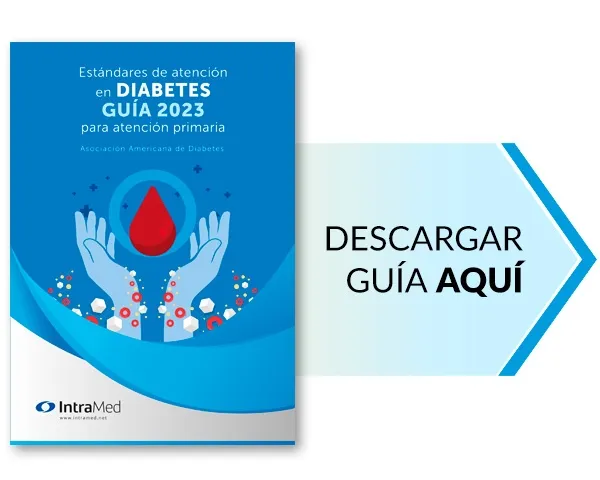
New standards for diabetes care
The diabetes care standards of the American Diabetes Association (ADA) are updated and publish annually and are developed by the Ada Multidisciplinary Professional Practice Committee, which is composed of expert professionals in medical care (HCP)in English) in diabetes.It includes the most current evidence -based recommendations to diagnose and treat adults and children with all diabetes forms.The ADA qualification system uses A, B, C or E to show the level of evidence that supports each recommendation.
A: Clear evidence of generalizable and well -made random controlled trials that have adequate statistical power
B: Evidence of support of well -made cohorts studies
C: Evidence of support of poorly controlled or unusual studies
E: Expert consensus or clinical experience
You can download the guide here: Link
1. improve care and promote health in populations
Person -centered care considers the comorbidities and forecasts of individual patients;It is respectful and sensitive to the preferences, needs and values of the patient;and ensures that these considerations guide all clinical decisions.In addition, social determinants of health (SDOH), often outside the direct control of the individual and that potentially represent a risk of life, contribute to psychosocial and medical care results and must be addressed to improve all health results.
Recommendations
1.1 Make sure the treatment decisions are appropriate, are based on evidence -based guidelines, include support from the social community and take into collaboration with patients based on individual preferences, forecasts, comorbidities and financial considerationsInformed.(B)
1.2 Align approaches to the control of diabetes with the chronic care model.This model emphasizes person -centered equipment, long -term integrated treatment approaches for diabetes and comorbidities, and continuous collaborative communication and the establishment of objectives among all team members.(TO)
1.3 The care systems must facilitate face -to -face and virtual team, including those with knowledge and experience in the control of diabetes as part of the equipment and the use of patient records, tools to support decision making and participation of participation ofThe community to meet the needs of patients.(B)
Strategies for the improvement at the system level
- Attention teams
Collaborative and multidisciplinary teams are the most appropriate to provide care to people with diabetes and facilitate patient self -control, with emphasis on avoiding therapeutic inertia to achieve the recommended metabolic objectives.
- Telesalud
Telesalud can increase access to people with diabetes.Telesalud should be used as a complement to visits in person to optimize glycemic control in people with non -controlled diabetes.The evidence suggests that the Telesalud can be effective in reducing glycosylated hemoglobin (A1C) in people with type 2 diabetes compared to usual or in addition to it.Interactive strategies that facilitate communication between health professionals and patients seem more effective.
- Behaviors and well -being
The successful diabetes care requires a systematic approach to support patient behavior change efforts, including education and support for the self -control of diabetes (DSMEs)High quality.
Adaptation of treatment to social context
Recommendations
1.5 Evaluate food insecurity, housing insecurity, lack of housing, financial barriers and social capital and social community support to inform treatment decisions, with reference to appropriate local community resources.(TO)
1.6 Provide patients with additional support for self -control of health coaches or community health workers when available.(TO)
Health inequalities related to diabetes are well documented and have been associated with a higher risk of diabetes, a greater prevalence in the population and worst diabetes results.Financial barriers to the use of medicines continue to contribute to health disparities.

02/20/2023 12:24 p.m.
@fer - Diabetes Tipo 1 desde 1.998 | FreeStyle Libre 3 | Ypsomed mylife YpsoPump + CamAPS FX | Sin complicaciones. Miembro del equipo de moderación del foro.
Co-Autor de Vivir con Diabetes: El poder de la comunidad online, parte de los ingresos se destinan a financiar el foro de diabetes y mantener la comunidad online activa.
